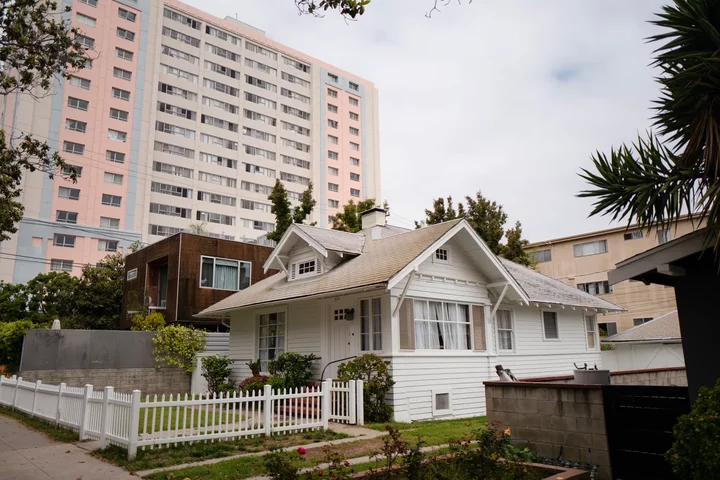Once Again, Kids Eat Free This Summer at Eureka City Schools
LoCO Staff / Monday, June 5, 2023 @ 4:41 p.m. / Education
Press release from Eureka City Schools:
Eureka City Schools (ECS) is pleased to announce our Summer Community Meals program will continue in 2023.
Starting June 26, 2023 and spanning through August 11, 2023, children 18 years of age and younger can access free nutritious meals from four designated school sites, Monday through Friday. School sites participating in the Community Meals Program are Alice Birney Elementary - the ECS Primary Community Meals site, Washington Elementary, Zane Middle School, and Eureka High School.
Eureka City Schools encourages families and approved programs to access meals at the Primary Community Meals site - Alice Birney. As part of a new California Pilot program, meals are not required to be consumed on-site, if accessed from the Primary Community Meals site. Meals are available at Alice Birney from 11:30 AM to 1:00 PM.
Washington, Zane and Eureka High will also have access from 6/26/23 to 8/11/23. At these locations meals must be consumed on-site. Meals will be available from 12:00 PM to 12:30 PM at Zane and EHS, and 12:30 PM to 1:00 PM at Washington. These sites have a short time window because they are either directly before or after the site’s designated Summer School lunch period.
The ECS Summer Community Meals Program provides an opportunity to continue a child’s physical and social development while providing nutritious meals during vacation periods from school. Eureka City Schools takes food insecurity very seriously and understands how much good nutrition is essential for not only learning in school but for a child’s overall growth and development. Having consistent access to healthy food can stabilize energy, promote strong bones and teeth, improve mental health, help to maintain a healthy weight, prevent chronic diseases, and even reduce anxiety and give a child confidence.Our participation in this federally-funded program through the U.S. Department of Agriculture helps children stay connected to their community and return to school ready to learn.
Eureka City Schools is an equal opportunity provider. If you have any questions, please contact Food Services Director Kevin Ralston at (707) 441-2501. The Community Meals Menu (when it becomes available) and other Food Services information is posted at www.ecsnutritionservices.com.
BOOKED
Today: 7 felonies, 7 misdemeanors, 0 infractions
JUDGED
Humboldt County Superior Court Calendar: Today
CHP REPORTS
7480 Mm101 N Hum 74.80 (HM office): Assist with Construction
ELSEWHERE
The Hill: Commerce chief Lutnick admits to visiting Epstein’s island during Senate grilling
SF Gate: San Ramon approves thousands of new housing units on former office lot
SF Gate: Sweeping new rules restrict nearly all aspects of national park communications
TEACHER of the YEAR! Arcata High Ag Teacher Named Top Local Educator of 2023, Will Now Compete for State Title
LoCO Staff / Monday, June 5, 2023 @ 10:08 a.m. / Education
The fabulous Ms. Miller. Graphic: HCOE.
Press release from the Humboldt County Office of Education:
Kelly Miller, an agriculture teacher at Arcata High School, has been named as the 2023 Humboldt County Teacher of the Year by the Humboldt County Superintendent of Schools, Michael Davies-Hughes.
“It is an honor to be selected as the 2023 Humboldt County Teacher of the Year,” Miller said. “It means a great deal to me to join many of my mentors and the talented educators who have received this award. Educators are essential in the development of our future. I am proud to be an educator.”
Miller was one of fifteen educators honored by the Humboldt County Office of Education with the Excellence in Teaching Award in May. The Excellence in Teaching Award recognizes classroom teachers from Transitional Kindergarten through 12th grade who have been identified as exemplary by their colleagues, students or school communities. Honorees must have a minimum of five years teaching experience.
Miller’s career began in 1996 as a first-grade teacher for Morris Elementary School. In 2015, Miller accepted the challenge of taking on an agriculture program at Northern Humboldt Union High School District that had seen a decline in enrollment. Under Miller’s leadership, the program has grown from 44 to 196 students over the past 8 years. The Arcata FFA Officer Team had this to say about Miller, “Mrs. Miller has demonstrated her dedication to our chapter in many ways by going above and beyond to serve and inspire our chapter and community. Mrs. Miller is devoted to her students and ensures that we all have access to amazing opportunities. She really cares about her students and gives them ample opportunities to succeed.”
Miller finds teaching students in this subject matter extremely rewarding as well.
“I say to people, ‘the best part of my job is that I don’t just teach a subject. I get to teach the whole student!’ I teach students skills that build direct relevance to the real world. Students leave my program with purchasing power, exposure to many different career choices, environmental sustainability, the confidence to speak in front of a group and the knowledge of how to shake a hand and look someone in the face when introducing themselves.”
As the Humboldt County Teacher of the Year, Miller now has the opportunity to be considered for the California State Teacher of the Year, traditionally announced in October.
‘Godzilla Next Door’: How California Developers Gained New Leverage to Build More Homes
Ben Christopher / Monday, June 5, 2023 @ 7:17 a.m. / Sacramento
A high-rise apartment tower stands behind single-family homes near Wilshire Boulevard and 6th Street in Santa Monica on May 24, 2023. Photo by Zaydee Sanchez for CalMatters
Late last fall, a Southern California developer dropped more than a dozen mammoth building proposals on the city of Santa Monica that were all but designed to get attention.
The numbers behind WS Communities’s salvo of proposals were dizzying: 14 residential highrises with a combined 4,260 units dotting the beachside city, including three buildings reaching 18 stories. All of the towers were bigger, denser and higher than anything permitted under the city’s zoning code
City Councilmember Phil Brock attended a town hall shortly after the announcement and got an earful. A few of the highlights: “Godzilla next door,” “a monster in our midst” and “we’re going to never see the sun again.”
“‘Concerned’ would be putting it mildly,” Brock said of the vibe among the attendees. “A lot of them were freaked.”
As it turns out, freaking locals out may have been the point.
WS Communities put forward its not-so-modest proposal at a moment when it had extreme leverage over the city thanks to a new interpretation of a 33-year-old housing law. Santa Monica’s state-required housing plan had expired and its new plan had yet to be approved. According to the law, in that non-compliance window, developers can exploit the so-called builder’s remedy, in which they can build as much as they want wherever they want so long as at least 20% of the proposed units are set aside for lower income residents.
Over the last two years, local governments across California have had to cobble together new housing plans that meet a statewide goal of 2.5 million new units by 2030. At last count, 227 jurisdictions — home to nearly 12 million Californians, or about a third of the state population — still haven’t had their plans certified by state housing regulators, potentially opening them up to builder’s remedy projects.
That gives developers a valuable new bargaining chip.
WS Communities used its advantage in Santa Monica to broker a deal in which it agreed to rescind all but one of its 14 builder’s remedy projects in exchange for fast-tracked approval of 10 scaled-down versions.
“The builder’s remedy — the loss of zoning control, the ability of a developer to propose anything, Houston-style, whatever they want, no zoning regulations — that gets people’s attention,” said Dave Rand, the land-use attorney representing the WS Communities. “The builder’s remedy can be a strategic ploy in order to potentially leverage a third way.”
For the developer, the settlement — which still needs a final vote to fully be implemented — is a major win. But this use of a long-dormant law also represents a shift in the politics of housing in California, reflecting a new era of developer empowerment bolstered by the growing caucus of pro-building lawmakers in the Legislature.
“The old games of begging municipalities for a project and reducing the density to get there and kissing the ass of every councilmember and planning official and neighbor — that’s the old way of doing things,” said Rand. “Our spines are stiffening.”

WS Communities proposed several high-rise apartment towers in Santa Monica in the fall of 2022. It scaled back and rescinded some of the plans in a deal that expedited a set of 10 projects. Image via the Ottinger Architects proposal
It’s hard to know just how many builder’s remedy projects have been filed across the state. YIMBY Law, a legal advocacy group that sues municipalities for failing to plan for or build enough housing, has a running count on its website of 46 projects, though its founder, Sonja Trauss, admits that it’s an imperfect tally.
Some of the projects, like those in Santa Monica, are towers with hundreds of units. Others are more modest apartment buildings. Whatever the total, Trauss said it represents a significant uptake for a novel legal strategy.
“There were a lot of naysayers who were like ‘it’s too risky,’ ‘nobody knows what’s gonna happen,’ ‘nobody’s gonna do it,’ blah, blah, blah,” she said. “I feel vindicated. You know, people are trying it.”
But counting just the units proposed under the law misses its broader impact, said UC Davis law professor Chris Elmendorf.
Multiple cities rushed forward their housing plans this year, with city attorneys, city planners and councilmembers warning that failure to do so before a state-imposed deadline could invite a building free-for-all.
“All the action is in negotiation in the shadow of the law,” said Elmendorf. The law “may result in a lot of other projects getting permitted that never would have been approved because the developer had this negotiating chip.”
Rediscovering the California builder’s remedy
If it’s possible for someone to unearth a forgotten law, Elmendorf can rightly claim to have excavated the builder’s remedy.
The Legislature added the provision to the government code in 1990, but no one used it for decades. In the one case Elmendorf found where someone tried — a homeowner in Albany, just north of Berkeley, who wanted to build a unit in his backyard in 1991 without adding a parking spot — local planners shot down the would-be builder.
Elmendorf stumbled upon the long-ignored policy 28 years later while researching East Coast laws that let developers circumvent zoning restrictions in cities short on affordable housing.
He started tweeting about it. He even dubbed the California law the “builder’s remedy,” borrowing the coinage from Massachusetts.
“I think it’s fair to say that people in California had forgotten about the builder’s remedy almost completely until I started asking about it on Twitter,” he said. “I think those twitter threads led some people to say, ‘huh.’”
Among those who noticed: staff at the state Housing and Community Development department who began listing the “remedy” as a possible consequence of failing to plan for enough housing.
Why was the builder’s remedy largely forgotten? The text of the law is complicated and it’s only relevant once every eight years, when cities and counties are required to put together their housing plan. Plus, though it allows developers to ignore a city’s zoning code, it’s not clear that it exempts them from extensive environmental review, making the cost savings of using it uncertain.
But more importantly, up until recently, invoking the builder’s remedy — the regulatory equivalent of a declaration of war — was bad for business.
“The old games of begging municipalities for a project and reducing the density to get there and kissing the ass of every councilmember and planning official and neighbor — that’s the old way of doing things. Our spines are stiffening.”
— Dave Rand, land-use attorney
Historically, local governments have had sweeping discretion over what gets built within their borders, where and under what terms and conditions. Developers and their lawyers hoping to succeed in such a climate had to excel at what one land use attorney dubbed the art of “creative groveling.”
But in recent years, as the state’s housing shortage and resulting affordability crisis have grown more acute, lawmakers have passed a series of bills to take away some of that local control. In many cases, cities and counties are now required to approve certain types of housing, like duplexes, subsidized housing apartments and accessory dwelling units, as long as the developer checks the requisite boxes.
That’s all led some developers to rethink their approach to dealing with local governments — one that is less concerned with building bridges and isn’t so afraid to burn a few.
Santa Monica makes a deal
Santa Monica’s city council voted unanimously for the deal with WS Communities early last month — but grudgingly.
In exchange for the developer pulling its original proposals, the city agreed to a streamlined approval process for the new plans. The council also agreed to pass an ordinance to give the developer extra goodies on the 10 remaining projects.
If the city doesn’t pass the ordinance, according to the settlement, WS Communities has the right to revive the builder’s remedy for all 14 towers.
Councilmember Brock, elected in 2020 along with a slate of development-skeptics, was hardly a fan of the deal. But as he saw it, the prospect of a lengthy legal battle that the city’s attorney insisted Santa Monica would lose gave the council little choice. That didn’t make what Brock viewed as a hard-knuckle negotiating tactic any easier to swallow.
“I don’t believe for a minute that they ever planned to build all those projects,” he said.

A bulldozer on the corner of 7th Street and Colorado Avenue in Santa Monica on May 24, 2023. Photo by Zaydee Sanchez for CalMatters
Councilmember Caroline Torosis, who was elected last fall, laid the blame on the prior council for failing to pass a timely housing plan. Even so, she said the city had no choice but to reclaim control over its own land use from the developer.
“We were put in a difficult situation,” she said. “I think that this was absolutely the best negotiated settlement that we could have reached, but of course, they had leverage.”
Both Scott Walter, the president of WS, and Neil Shekhter, the founder of the parent company, NMS Properties, refused a request to be interviewed through their lawyer, Rand.
But in true property kingpin fashion, WS was able to flip these builder’s remedy proposals into things of even greater value: ironclad plans that it can build out quickly or sell to another developer.
“The builder’s remedy projects were anything but fast and certain,” said Rand. “This has been parlayed into something with absolute certainty and front-of-the-line treatment.”
Affluent California cities fight back
About an hour’s drive northeast of Santa Monica, the foothill suburb of La Cañada Flintridge recently rejected a builder’s remedy application.
During a May 1 hearing, Mayor Keith Eich stressed the city was “not denying the project.” Instead, they were denying that the builder’s remedy itself even applied to the city.
The argument: The housing plan the council passed last October complies with state law. California’s Housing and Community Development department rejected that version of the plan and has yet to certify a new one. But La Cañada’s city attorney, Adrian Guerra, argued at the hearing that the agency’s required changes were minor enough to make the October plan “substantially” compliant.
“You can’t just fight a losing battle. I think anybody who decides they’re gonna be an all star NIMBY is up for failure.”
— Phil Brock, Santa Monica City Councilmember
That’s not how state regulators see it. In March, the housing department sent the city a letter of “technical assistance.”
“A local jurisdiction does not have the authority to determine that its adopted element is in substantial compliance,” the letter reads.
Not so, said Guerra: “The court would make that determination.”
A number of cities across the state have made that argument. Among them are Los Altos Hills and Sonoma. Beverly Hills is already fending off a lawsuit contending that the law applies to that city, though it recently rejected a builder’s remedy project on extensive technical grounds.
It’s a question that’s almost certain to end up in court. A recent California’s Fifth Circuit Court of Appeal ruling offers legal fodder to both sides.
The April opinion ruled against the state housing department’s certification of the City of Clovis’ housing plan. That’s a point for those arguing that the word of state regulators is not inviolate. But the ruling also noted that courts “generally” defer to the state agency unless its decision is “clearly erroneous or unauthorized.”
Down the coast, the City of Huntington Beach isn’t relying on such legal niceties. In March, the city council passed an ordinance banning all builder’s remedy projects under the argument that the law itself is invalid. Days later, the Newsom administration sued the city.
But in Santa Monica, city council members didn’t see much upside in pushing back.
“You can’t just fight a losing battle,” Brock said. “I think anybody who decides they’re gonna be an all star NIMBY is up for failure.”
###
CalMatters.org is a nonprofit, nonpartisan media venture explaining California policies and politics.
OBITUARY: Margaret Rita Crotty, 1925-2023
LoCO Staff / Monday, June 5, 2023 @ 7:01 a.m. / Obits
Margaret
Rita Crotty
November
4, 1925 - May 26, 2023
On her 94th birthday, Marge Crotty walked across the Golden Gate Bridge. It wasn’t easy, but she was determined and she was strong. When she finished, people congratulated her on the accomplishment. It was a beautiful day in San Francisco and people were chatting and laughing, inspired by her spirit and her friendly sense of humor. Mom brought a smile wherever she went.
Never learning to drive, Marge walked almost daily and many in the Fortuna community knew her. Often seeing her with a bag or two of groceries, someone would stop and ask, “Marge, do you need a ride?” She would sometimes reply with, “No, thanks, I’m in a hurry.” Other times she would happily accept the ride home.
Marge passed peacefully on May 26, 2023 at the age of 97. She was born in St. John’s Newfoundland to John and Margaret Heffernan. In 1955 she married John Crotty and in 1956 the couple moved to Fortuna. Margaret and John raised their family in Fortuna. Margaret is survived by her children, Sheila St. John, John Crotty (Debbie Reynolds), Colleen Crotty (Denny Waters) and Kevin (Pam) Crotty. Marge had a special place in her heart for all of her grandchildren, Chad Crotty, Jeffrey Crotty, Kelsey (Tiffany) Waters, Sean Waters, Megan (Russell) Coleman, Beth (David) Newland and Maggie (Jason) Walczak. Her life was blessed with great grandchildren, Emma, Skylar, James, Sara, Sailor, Jack, Kade and Aria. She is also survived by her much loved sister-in-law and true friend, Catherine Will.
Margaret goes on to join her husband John, brothers; William, Joseph, John, and sister Mary (Nash). She leaves behind her brother Michael Heffernan (Judy) and numerous nieces and nephews, many of whom would call her from Newfoundland and Alberta regularly to chat and have a laugh. She enjoyed their calls and was grateful they stayed in touch through the years.
Grandma’s home was the gathering spot for many years of family get-togethers. She cooked holiday dinners well into her nineties. Marge was full of energy, hard-working, independent, living and maintaining her home until her passing. She was always ready to go for an outing, just give her a minute to get ready. Her last outing was a trip to Ferndale for lunch two days before her passing. You can’t keep a good woman down.
She will be missed and she was such a big part of our lives. We continue to be inspired by her strength, her determination, and her always present sense of humor. We feel so fortunate to have had her in our lives for so long.
The family would like to thank Hospice of Humboldt for their support and compassion. Special thanks to her nurse, Jennifer, Chaplain Chris, and her home health aide, “my girl” Itzel.
Her
diminished size is in me - not in her.
And,
just at the moment when someone says, “There,
She
is gone,” there are other eyes watching her coming,
And
other voices ready to take up the glad shout,
“Here she comes!”
— Henry Van Dyke
###
The obituary above was submitted on behalf of Margaret Crotty’s loved ones. The Lost Coast Outpost runs obituaries of Humboldt County residents at no charge. See guidelines here. Email news@lostcoastoutpost.com.
OBITUARY: Curtis Ray Hillman II, 1957-2023
LoCO Staff / Monday, June 5, 2023 @ 6:51 a.m. / Obits
It
is with great sadness we announce the passing of Curtis Ray Hillman
II on May 19, 2023.
Curtis Ray Hillman II was born on February 3, 1957, in Sacramento to Curtis and Betty (Butcher) Hillman. He was a Karuk tribal member and spent most of his life in Orleans, until about 1995 when he moved to Arcata with the love of his life, Serena Brooks.
Curt had a few different careers. He was a logger and was known as “Little Cat” because his dad, big Curt, was a cat skinner known as “Big Cat.” He worked at the sewage treatment plant in Arcata for a while and he also worked at the Karuk Tribe Department of Fisheries. If there was something that needed fixing, he’d figure it out. Whether or not he had the right parts or tools, he always found a solution. At one point he was the coach for the women’s softball team in Orleans. He loved that.
Curtis loved his friends and family fiercely and deeply. His heart was pure gold, and he was one to give little tokens to those he loved and cared about. If you needed help, he was there. He was the one who would give you his shirt off his back if he thought you needed it more than him. He rarely met a stranger and would strike up a conversation with anyone. He was a friend to everyone.
Curtis had a very large sense of humor. He could find humor in almost anything. There was never a conversation with him where he didn’t let out a giggle somewhere along the way. He loved his native culture and all the old ways. He recently attended a powwow in New Mexico and was in awe stating, “I never saw so many Indians in one place in my whole life!” He was a lover of cars and never owned a vehicle that he didn’t beef up to some sort of hot-rod status. He loved the drag races out in Samoa and attended as much as possible.
Curtis was predeceased by his parents, his brother Leroy Gene Hillman, and his son Justin Donahue.
Curtis is survived by his love, Serena, children Sian, Codie, Ahanu, Windsong; sisters Charlene, Shelley, Debbie, Skooter and brothers Dale and Leon as well as numerous grandchildren, nieces and nephews, and several lifelong friends. He leaves behind his beloved cat Trent, who misses him terribly.
A celebration of Curt’s life will be held on June 10, 2023, at the Karuk DNR building in Orleans at 11 a.m. with Kathy McCovey officiating. Potluck to follow, so bring a side dish and a story.
###
The obituary above was submitted on behalf of Curtis Hillman’s loved ones. The Lost Coast Outpost runs obituaries of Humboldt County residents at no charge. See guidelines here. Email news@lostcoastoutpost.com.
GROWING OLD UNGRACEFULLY: Hunters, Gatherers and Cooking
Barry Evans / Sunday, June 4, 2023 @ 7 a.m. / Growing Old Ungracefully
Last week, after I claimed that the invention of the basket was a necessary precursor to cooking, several of you objected, saying fires + cooking would have occurred first, and were, anyway, much more important than efficient foraging. After going back and reading what I’d previously written, some years ago, about the importance of cooking, I’m back to say, (gasp) I was probably wrong: cooking led to baskets, not the other way round.
The problem is that, when we’re talking about what happened with our forebears two million years ago, we have tons of speculation and very little actual data to go on.
Data
Between 2.0 and 1.7 million years ago, Homo skeletons changed dramatically. Our two-million-year-old Australopithecus ancestors were apes: they had short stature with a slouching gait, low brows, massive jaws and mouths housing huge teeth, a small (chimpanzee-sized, 37 cubic inches) brain, flared ribs around a big belly and limbs adapted to tree climbing. All the hallmarks, in other words, of a bipedal ape.
Just 300,00 years/20,000 generations later, they had evolved into essentially modern anatomy, Homo erectus. Put one of them into a suit, give them a shave and haircut, and you might be fooled into thinking they were us. They still had a more compact brain than ours (53 vs. 73 cubic inches*), but, compared to Australopithecus, they had much smaller teeth, jaws, mouths, stomachs and colons. Also, their body weight almost doubled, from 75 to 135 pounds.
* Someone figured out that’s equivalent to each generation having 125,000 more neurons than their parents.
Cooking probably got us from Australopithecus (2.0 million years ago) to Homo erectus (1.7 million years ago). (Wrangham-Carmody, used with permission)
Speculation
The catalyst for these dramatic changes was cooking. Cooked meat is essentially pre-digested meat, which, from the POV of our stomach enzymes, is far easier than raw meat to convert into energy; it takes much more time and energy to digest cold, hard, tough food than cooked food.
(Great apes eat twice as much as we do because 30% of their food is indigestible fiber that gets excreted. They spend the better part of their waking lives chewing, while we devote about an hour a day to eating.) This is speculation, because we don’t have archeological evidence that humans controlled fire 1.9 million years ago—the oldest accepted evidence for hearths is only about 250,000 years old. (Neither, of course, do we have millions of years-old baskets—the oldest has been dated to about 10,000 years ago.)
Now comes the interesting part. If you’ve hunted down an animal and you want to cook it, you have to schlep it back to the tribe, because that’s where the fire is. Meaning you have to learn to share it with the whole gang. And if you’re sharing meat, you’re probably a dude (males being anatomically stronger and faster than females), leaving the womenfolk free to go out gathering berries and roots. (There’s limited evidence that foraging was more efficient, in terms of net calories per day, than hunting.) And, as I discussed last week, the key to efficient foraging is a basket to carry home the (literal) fruits of your labor.
(If all this piques your interest, do read Catching Fire: How Cooking Made us Human by Richard Wrangham, professor of biological anthropology at Harvard. It’s in the County library.)
Maybe it’s chicken and egg, but I’m backing off the “baskets first-cooking later” scenario. Something happened to our African forebears two million years ago, and, absent aliens, it probably all started when some clumsy guy — I bet it was a dude — accidentally dropped a chunk of raw meat into the fire: the world’s first BBQ.
HUMBOLDT TEA TIME: Old Town Wild Man Barry Evans Has a New Book Out, and it’s All About Humboldt
LoCO Staff / Saturday, June 3, 2023 @ 3 p.m. / People of Humboldt
Today for tea time: None other that Humboldt gadabout Barry Evans — writer, engineer, science enthusiast and Xtreme Brit. Barry has a new book out, and he’s eager to tea down for promotional purposes.
That book is the sequel to the popular Humbook, and it’s called Humbook 2! It’s chock-full of all sorts of weird bite-sized stories about Humboldt history, geography, biology and more, and it is a nice thing to have around to awe out-of-towners with.
The Outpost’s John Kennedy O’Connor drags all sorts of stuff out of Barry, including how he got into the business of scribbling, and a retelling of the time he almost burned down the King Range.
Thai tea today. Spoiler: Barry likes it, O’Connor does not.
You knew this was coming, and here it is: Today’s tea time snack is Crustless Cucumber Sandwiches. Once you assemble that sucker and get every bit of crust removed, press play on the video above and join us! Then come back tomorrow morning for Barry’s regular Sunday Outpost column!






